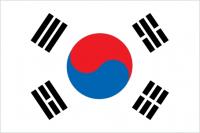Source of Innovation: Accelerating SDG 6
Inter-American Development Bank (IDB)
(
Intergovernmental organization
)
#SDGAction52004
Description
The commitment of the Source of Innovation alliance and its partners to achieve SDG 6 is to promote innovation as an accelerator towards better services and to continue carrying out different initiatives that identify and support the transformation of the WASH sector in Latin America and the Caribbean for the next five (5) years.
Specifically, Source of Innovation directly addresses the challenges identified in the regional diagnostics previously carried out by the Inter-American Development Bank (IDB) to assess the barriers and opportunities for innovation in the sector in the region. Source of Innovation focuses on four components:
1-Strengthening the demand for innovative solutions - empowering service providers by providing them with tools, methodologies, and opportunities to test innovative solutions.
2- Strengthening the supply for sectoral innovation - identifying and supporting in a dynamic and interactive way the supply of innovative solutions and products developed by the private sector and the innovation ecosystem.
3- Promote the formation of alliances between emerging companies and entrepreneurs, service providers and investors, strengthening the regional innovation ecosystem and its key players, as well as creating and strengthening spaces for dialogue.
4- Foster a culture and environment conducive to innovation in the water, sanitation and solid waste sector, facilitating a cultural shift towards innovation in the sector in Latin America and the Caribbean.
This will be achieved through activities such as: the e-Hackathon for young people to develop innovative ideas to address gaps in the WASH sector (i.e. sanitation in informal settlements, water services in dispersed rural areas), the Ideas in Action awards that recognize service operating companies, and the IDB-FEMSA Awards for entrepreneurs and innovative companies, to promote cooperation for water and tangible actions for the coming years in the sector.
State Secretariat for Economic Affairs (SECO) of the Government of Switzerland, Government of Israel, Ministry of Environment of the Government of South Korea, Fundación FEMSA and Stockholm International Water Institute (SIWI).
Call for proposals for start-up (IDB FEMSA Award 2023) is open: https://challenges.tekuoia.com/calls/bid_femsa_2023
SDGS & Targets
Goal 6
Ensure availability and sustainable management of water and sanitation for all
6.1
By 2030, achieve universal and equitable access to safe and affordable drinking water for all
6.1.1
Proportion of population using safely managed drinking water services
6.2
By 2030, achieve access to adequate and equitable sanitation and hygiene for all and end open defecation, paying special attention to the needs of women and girls and those in vulnerable situations
6.2.1
Proportion of population using (a) safely managed sanitation services and (b) a hand-washing facility with soap and water
6.3
By 2030, improve water quality by reducing pollution, eliminating dumping and minimizing release of hazardous chemicals and materials, halving the proportion of untreated wastewater and substantially increasing recycling and safe reuse globally
6.3.1
Proportion of domestic and industrial wastewater flows safely treated
6.3.2
Proportion of bodies of water with good ambient water quality
6.4
6.4.1
Change in water-use efficiency over time
6.4.2
Level of water stress: freshwater withdrawal as a proportion of available freshwater resources
6.5
By 2030, implement integrated water resources management at all levels, including through transboundary cooperation as appropriate
6.5.1
Degree of integrated water resources management
6.5.2
Proportion of transboundary basin area with an operational arrangement for water cooperation
6.6
6.6.1
Change in the extent of water-related ecosystems over time
6.a
6.a.1
Amount of water- and sanitation-related official development assistance that is part of a government-coordinated spending plan
6.b
Support and strengthen the participation of local communities in improving water and sanitation management
6.b.1
Proportion of local administrative units with established and operational policies and procedures for participation of local communities in water and sanitation management
SDG 14 targets covered
Deliverables & Timeline
Resources mobilized
Partnership Progress
Feedback
Action Network

Timeline
Entity
SDGs
Region
- Latin America and the Caribbean
Other beneficiaries
Youth, start-ups, water and sanitation operators.
More information
Countries



Contact Information
Anamaria, Senior Specialist

